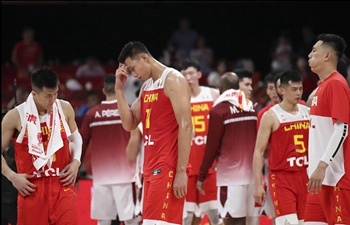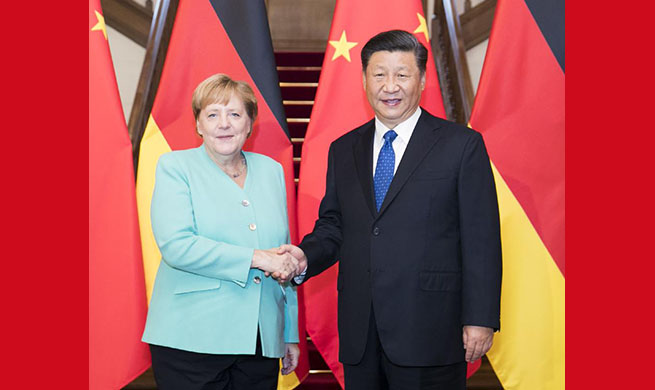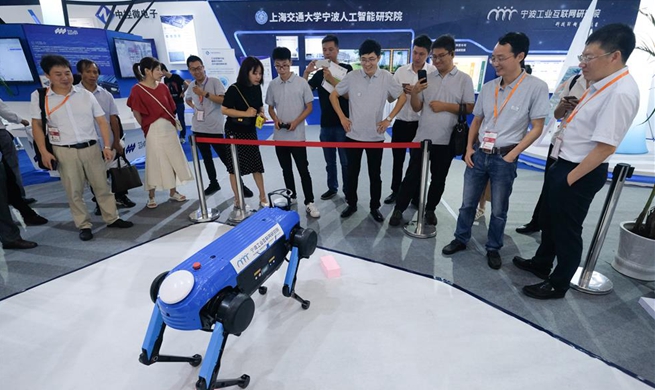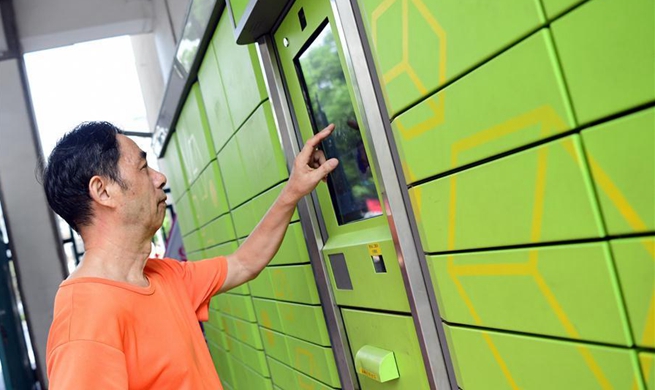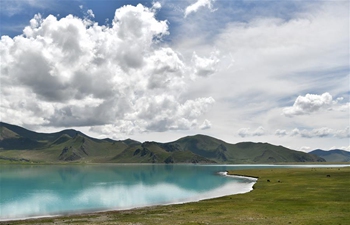By Eric J. Lyman
ROME, Sept. 6 (Xinhua) -- The first government of Italy's Giuseppe Conte would probably be remembered for instituting the most stringent anti-migrant reforms ever seen in a European Union (EU) member state.
To whatever extent that the second Conte government might reverse those policies will be under the expert eye of Luciana Lamorgese, the new interior minister.
Lamorgese, a career civil servant, is the lone technocrat among the 21 ministers in Conte's new cabinet sworn in on Thursday. But she is not new to migration policymaking, the most high-profile aspect of her new job. A respected authority on the topic, Lamorgese had been a senior staffer for her two predecessors - Marco Minniti and Matteo Salvini.
Salvini, head of the nationalist, anti-migrant League, built his party into a national powerhouse by stoking fears about immigrants in Italy. After a failed bid for power, however, the party is no longer part of the government coalition replaced by the center-left Democratic Party.
In its negotiations with its new government partner, the populist Five-Star Movement, the Democratic Party made a reversal of the League's draconian migration policies a prerequisite for its taking a role in the new government. After some haggling, the Five-Star Movement agreed.
That is where Lamorgese comes in.
Italy has long been on the front line when it came to would-be migrants fleeing war, terrorism, or poverty in Africa and the Middle East. According to information from the research and data firm Statista, nearly one million migrants landed on Italian shores over a six-year period ending in 2016.
But the number of arrivals to Italy has fallen in recent years. The peak number of arrivals during that period came in 2016, with nearly 200,000 arrivals. The number fell to 120,000 in 2017, 23,000 last year, and fewer than 250 over the first seven months of 2019, the latest comprehensive figure available showed. As the number of arrivals dropped, the number of deaths among those trying to reach Europe climbed.
Advocacy groups are hopeful that Lamorgese's appointment will result in "more relaxed tones" in Italy's immigration policy.
"We believe that human rights and respect for international conventions should return to being the cornerstone of Italy's priorities on migration," Camillo Ripamonti, director of JRS-Italia, a refugee service group, told Xinhua. "We are confident we can re-establish a serious level of cooperation between the Ministry of the Interior, rescue organizations, and the European Union."
Ripamonti made reference to Salvini's policy of punishing rescue ships with big fines and threatening to seize the rescue ships themselves. Salvini repeatedly clashed with the EU and other member states over the government's policy of closing Italian ports to all but a small handful of migrant arrivals.
Those policies are likely to change. But Francesco Galietti, founder of Policy Sonar, a Rome-based political risk consultancy, said it would be a mistake to expect Lamorgese to make those changes with the same dramatic flair Salvini employed when he announced restrictions during major political rallies or via social media.
"She will address issues in a quiet, methodical, professional way," Galietti said in an interview. "She won't advertise what she is doing. To imagine how things will work, think back to the world before social media. That's what it will be like. We will have to figure things out as they happen."



